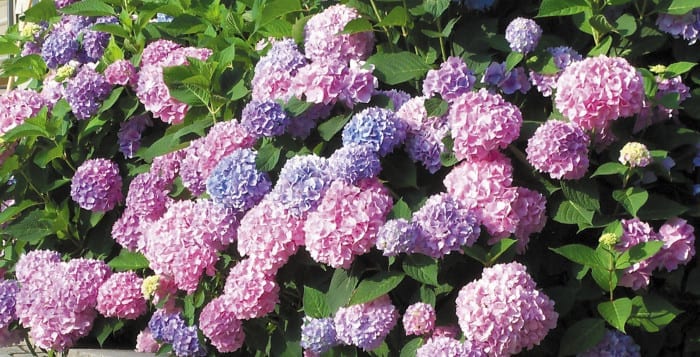Compost: good for the garden, good for the environment
By Ellen Barcel
In many of my previous columns, I’ve talked about the benefits of using compost and compost tea on your plants. Let’s start with some basic information on what compost is and how to make it.
Compost is decayed organic matter. It’s full of nutrients and makes a great fertilizer for plants. Compost aerates clay soil and helps to hold moisture in sandy soil, so it improves soil structure. Making your own compost keeps waste out of the land fill. It also ensures that you can keep pesticides and other chemicals out of the compost and therefore out of your soil.
There are two types of compost piles, hot and cold. The hot pile raises the temperature of the ingredients to at least 135 degrees. There are several benefits of a hot compost pile. One is that many damaging organisms, like plant bacteria, are killed in a hot pile. Another is that the hot pile decomposes more quickly. Add equal parts green and brown matter, grass clippings and dry leaves, for example, all finely chopped and mixed together. Smaller pieces will decompose more quickly than larger ones. Add some manure in the ratio of 1/3 to 2/3 plant matter for a hot pile or add some blood and bone fertilizer.
A cold compost pile takes longer to decompose, but you need to be less concerned with ratios, manure, etc. Never put diseased leaves in a cold pile. You’re just saving the disease organisms for the next season. Actually, I never put diseased plant parts in any compost pile, just to be on the safe side. Make sure that you keep the compost pile moist or the plant matter will not decompose. Think about the Egyptian mummies, in the desert for thousands of years, yet not decomposed. Periodically turn the pile over. If you use one of the rotating composters on a stand, this step is very easy.
What goes in the compost pile? Any healthy green plant matter, but not woody as it takes too long to decompose, and lawn clippings; coffee grounds and used tea bags; paper towels; and kitchen peelings including apple cores, orange peels, etc. — keep a closed container in the kitchen to collect them and then periodically bring them out to the garden — crushed eggshells and manure from herbivores, such as cows and horses.
Do not add protein, such as leftover meat, which draws critters and is slow to decompose; fatty substances; manure from carnivores, such as dogs and cats, as it can transmit disease; and diseased plant parts.
Compost can be applied as a top dressing or lightly dug into the soil, being careful to avoid surface roots of plants. It can also be mixed into the soil when you transplant or add a new plant to the garden.
If you choose not to make your own compost, but acquire it from other sources, remember that you don’t know what has been used to make that compost. It may be exactly as you would make yourself or not. If you are keeping a strictly organic garden, this can be a problem. For example, whoever made the compost may have used insecticides on the plant matter or weed killers. I used to get compost from a local free source only to find pieces of broken glass in it along with pieces of wire. So, always wear your gardening gloves to protect your hands.
Next week, making compost tea.
Ellen Barcel is a freelance writer and master gardener. To reach Cornell Cooperative Extension and its Master Gardener program, call 631-727-7850.







